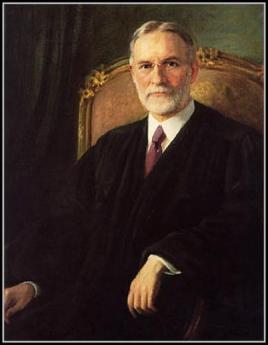Related Topics
Reflections on Impending Obamacare
Reform was surely needed to remove distortions imposed on medical care by its financing. The next big questions are what the Affordable Care Act really reforms; and, whether the result will be affordable for the whole nation. Here are some proposals, just in case.
Void for Vagueness?
The three branches of government have become unbalanced. Obamacare and the Dodd-Frank Bill were almost entirely written outside of the Legislative branch, and their ensuing regulations will also be written in the Executive branch. The founding fathers certainly never envisioned such sweeping modifications would be made in the medical and financial industries, against the wishes of these industries, and in any event, without convincing demonstration, the public either understood or was in favor. This is what is fundamentally wrong about taking such important decisions out of the hands of Congress; it leaves the public wondering who makes these puzzling laws.

|
| Justice George Sutherland |
There is no need to go further than this, harsh words will only inflame the reaction more than necessary to justify a pull-back. And yet, the Supreme Court would certainly do us mercy if it doused these flames; perhaps the Supreme Court needs a legal pretext. May we suggest that Justice George Sutherland, who sat on the court seventy years ago, may have sensed a similar direction to things, short of using a particular word. Justice Sutherland recognized that although it is impractical to waver from the principle that ignorance of the law is no excuse, it is nowadays entirely possible for a person of ordinary understanding to read a law in its entirety and still remain confused as to its overall intent. Sutherland thus created a legal principle that a law may be void if it is too vague to be understood. We might also add "too carelessly written", and/or "too obscurely constructed". In particular, said Sutherland, a common criminal may be even less able to make a serious analysis of the case against him. Therefore, at least in criminal cases, a law may well be void for vagueness. In this case, we are not speaking of criminals as defendants or civil cases of alleged damage of another party by a defendant. Here, it is the law itself which gives offense by its vagueness, and Congress which created the vagueness is the defendant. Since we have just gone to considerable length to describe the manner in which Congress is itself ultimately the main victim, this situation may be one of the few remaining ones where a Court of Equity is needed. That is, an obvious wrong needs to be corrected, but no statute seems to cover the matter. The Supreme Court might give some thought to convening itself as a special Court of Equity, on the special point of whether this legislation is void for vagueness.
We indicated earlier that one word was missing in this bill of particulars. That would be needed, to expand the charge to void for intentional vagueness, an assessment which is unflinchingly direct. It suggests that somewhere in at least this year's contentious processes, either the Executive Branch or the officers of the congressional majority party, or both, intended to achieve the latitude of imprecision, that is, to do as it pleased. Anyone who supposes the general run of congressmen voluntarily surrendered such latitude in the Health or Finance legislation, has not been watching much television. Given the present vast quantity of annually proposed legislation, roughly 25,000 bills each session, the passage of a small amount of vague legislation might only justify voiding individual laws, whereas an undue amount of it might additionally justify a reprimand. However, engineering laws which are deliberately vague, might rise to the level of impeachment.
The following final rule of the regulations of the Affordable Care Act, is reproduced Verbatum in order to illustrate the nature of the problem. It might not be the best instance to select for a lawsuit, but it is a handy example of how turgid regulatory language can completely baffle the people compelled to obey, and therefore gives regulators a freer hand to act as they please without challenge. Without implying this particular lack of clarity is deliberate, at the very least it illustrates how little effort was devoted to making it clear. If ignorance of the law is no excuse, a person who actually reads it has a diminished excuse for not understanding it while remaining no wiser. In view of this injury, its authors equitably should be subject to discipline for careless composition.
Originally published: Wednesday, August 14, 2013; most-recently modified: Wednesday, June 05, 2019